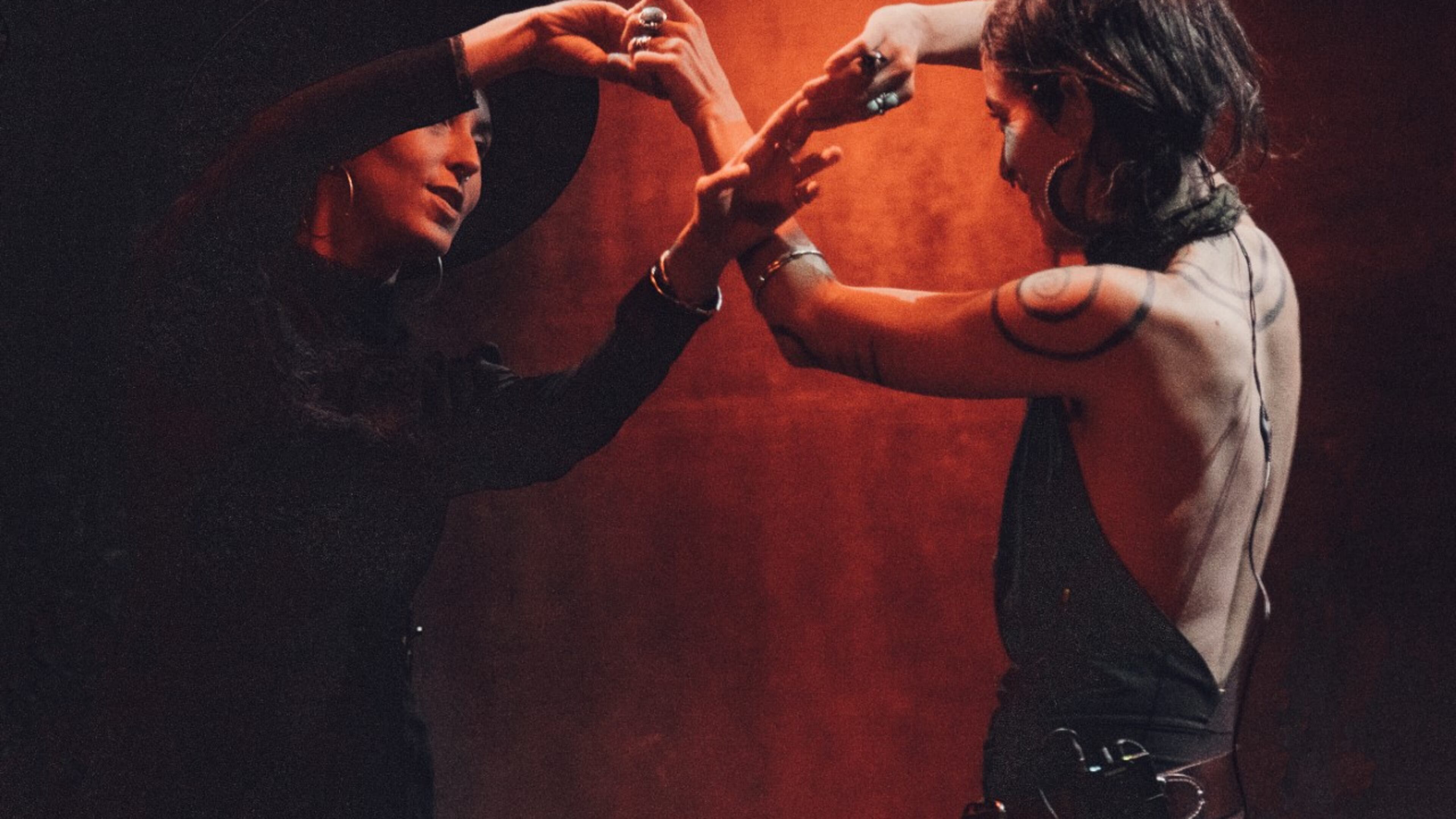Mic Check: Rising Appalachia drops surprise album

Sisters Chloe and Leah Smith grew up with a dichotomous lifestyle.
They attended Inman Middle School and Grady High School, but their parents frequently brought them to the Southern Appalachian region, where they were familiarized with mountain culture (the girls’ mother also worked for Delta, so travel was frequent).
The hip-hop influences of OutKast, the dance clubs of Atlanta and the organic instruments played by their parents — fiddle and banjo — all sparked their musical interests. When they formed Rising Appalachia in the mid-2000s, it seemed destined to fuse the complementary aspects of the sounds.
On May 21, the band released a surprise album, “The Lost Mystique of Being in the Know.” It’s not so much a follow-up to 2019′s “Leylines,” but an ambitious collection of nine songs that span the mesmerizing “Lost Girl” to the invigorating “Keep Going” and mesh fiddle, banjo, guitar and percussion for an intoxicating world-beat brew.
Joining Chloe and Leah — who split their time between Atlanta and Asheville, North Carolina, and collectively sing and play banjo, fiddle, kalimba and percussion — are Duncan Wickel (cello, fiddle), Arouna Diarra (ngoni, percussion), David Brown (guitar, banjo, upright bass) and Biko Casini (djembe, ngoni, congas).
Rising Appalachia has a few small shows planned for June — in Asheville, Pittsboro, North Carolina, and Woodstock, New York. But Chloe said the band will “try to move slowly and do baby steps” to ease into regular touring, which they hope will include a return to their favorite Atlanta playing spot, the Variety Playhouse.
Chloe talked more about the creation of the surprise album and the influences that anchor Rising Appalachia.
Q: The band was all separated for most of the pandemic, which must have been strange.
A: My sister went on a trip to Costa Rica in March and ended up quarantining there for eight months. She had a few opportunities to come back but felt a little frightened to fly and was in a safe place so she decided to stay. That was one of the longest amounts of time we’ve been apart. I was in Appalachia and I live on a farm. I’ve been living here for five years, so I was just taking more of a role helping the farmers grow food here. The rest of the guys were in Phoenix, Tennessee and Colorado. It was really different when you’re used to spending 200 days a year on the road.
Q: But that separation ultimately led to the creation of this new album?
A: The new album has a fun story. Probably five years ago one of our band members, David, he’s quite a poet. He was having a conversation on the tour bus with a friend of ours and he said, “There’s a lost mystique.” They were talking about everyone having a lot of information about a lot of things. I turned around and said, “That’s such a cool phrase. One day we should make an album called that.” All this year I was thinking, how are we going to come back out into the world? We’ve all had time to work on music, but it’s been a strange year and art is a really good platform for strange. There wasn’t any plan to make an album, but it became here we all are, let’s book some studio time and press record and see what happens. I think because we toured 200 shows in 2019 we had gelled a lot, so we fell back upon knowing each other’s styles. The album we made, it’s quite unique and different. Each track is 10 minutes and it’s a little obscure. But yeah, it works and it felt really good.
Q: Why did you release it as a surprise?
A: The whole idea and background and desire behind the album was to do something untraditional and be a little more cryptic and untethered by what you usually do with an album. It felt like this was the year to step out of those boundaries and let it rip in a different way and try things. I’ve always loved when artists just drop music. You kind of want the art to just define itself.
Q: You have such an interesting musical foundation. Who were some of your inspirations?
A: In hip-hop, The Roots, Outkast, A Tribe Called Quest, some of the older stuff. In folk, a ton of old-time music of the mountains — pre-bluegrass and a little more simple. Bruce Molsky, he’s a great fiddler. Brittany Haas. Rhiannon Giddens. That style. We love traditional music. We’re part Scots-Irish, so I love traditional Irish music.
Q: Tell me about some of your activism work?
A: Our dad is a visual artist who was like, don’t make art for art’s sake, have a vision and a mission. Leah and I were activists before becoming musicians. She was doing a lot of work in Mexico and I lived in a redwood tree in Northern California for three months. In your 20s, you’re very frontline, and then as that changed and we started learning instruments, we wanted (activism) to naturally lead into our art. Be it playing for a protest or having local nonprofits come speak, we can at least provide a platform. We’re passionate about the environmental movement and Indigenous rights. We’re not Bono — we don’t have one thing. It’s a lot about who we get invited to collaborate with.


